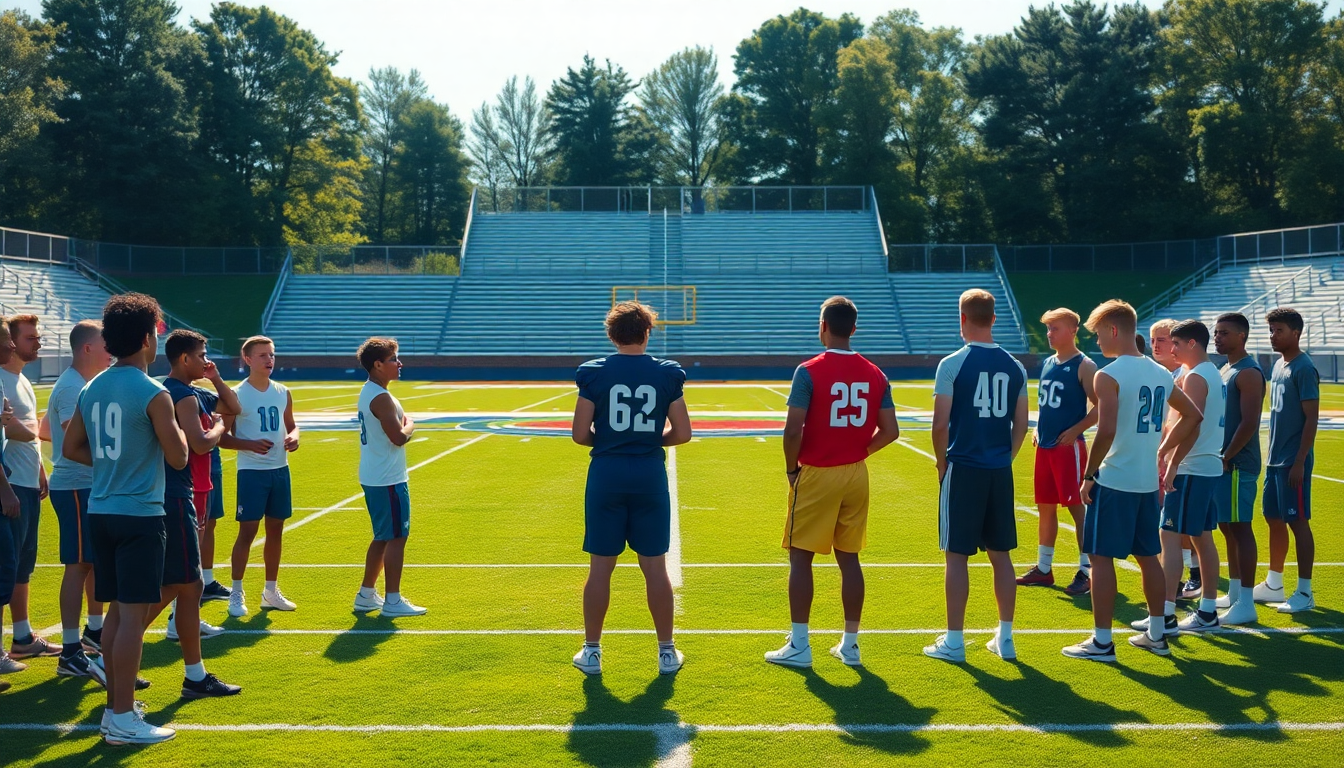Table of Contents
The debate surrounding trans athletes in girls’ sports has taken center stage in Maine, stirring up intense discussions among students, educators, and policymakers alike. This issue is more than just a sports topic; it taps into wider societal conversations about gender identity, fairness in competition, and the rights of all athletes. As Maine navigates its policies on trans participation, the implications for its educational system and its athletes are significant and far-reaching.
Market Overview: The Intersection of Education and Policy
When it comes to education, especially in the realm of sports, the policies set by local and state governments carry a lot of weight. Maine’s Department of Education, led by Commissioner Pender Makin, has been pivotal in this ongoing debate. In the wake of executive orders from the Trump administration that aimed to shift the landscape of girls’ sports, Makin took a stand by issuing memos to school districts reinforcing compliance with the Maine Human Rights Act. This move underscores a dedication to protecting all students, even in the face of federal pressures.
These memos stressed the importance of adhering to state laws and local policies regarding nondiscrimination, reminding schools that federal mandates shouldn’t overshadow existing protections. The situation intensified when a transgender athlete from Greely High School won the girls’ pole vault championship, sparking backlash from some student-athletes and parents. The response from the Department of Education shows just how delicate the balance is between being inclusive and ensuring competitive fairness.
Analysis of Key Areas: The Impact of Policy on Local Communities
The ramifications of these policies extend far beyond the sports fields; they influence the broader educational environment and local communities as well. Many educators and parents are raising concerns about fairness in allowing trans athletes to compete in girls’ events, citing potential physical advantages. This has sparked activism among students, particularly female athletes, who feel that their opportunities for success in sports are at stake.
Moreover, the political fallout from this issue is hard to ignore. The actions of state officials, including school superintendents who have pushed back against federal orders, have prompted heated debates within the Maine legislature. For instance, the censure of GOP Rep. Laurel Libby for her strong views on the subject illustrates just how contentious this issue is, revealing the intersection of sports, gender identity, and political dynamics.
Trends and Investment Opportunities: A Broader Perspective
As the state navigates these complex challenges, the evolving landscape creates both hurdles and opportunities for investment in youth sports programs and facilities. Community stakeholders—including parents, educators, and local businesses—can find ways to support initiatives that promote fair and inclusive competition, while also addressing the concerns of every athlete involved.
The ongoing debates and potential policy shifts could reshape the dynamics of youth sports in Maine, affecting everything from funding for programs to how competitions are organized. Investors and community leaders who stay alert to these trends will be better positioned to advocate for solutions that honor the rights and ambitions of all young athletes.
Practical Advice for Stakeholders: Navigating the Future
For parents, educators, and policymakers, engaging in open conversations about the complexities of trans participation in sports is essential. Listening to the perspectives of all stakeholders—especially those of the athletes directly affected by these policies—can lead to constructive discussions. These dialogues can help pave the way for more inclusive practices that respect the rights of trans athletes while ensuring fair competition for everyone.
As the state gears up for upcoming legislative sessions and possible legal challenges, staying informed and involved in the conversation will empower communities to effectively advocate for policies that reflect their values and support the well-being of all students.
Future Outlook: Anticipating Changes in Policy and Community Response
As Maine continues to grapple with its approach to trans athletes in girls’ sports, the coming months are likely to usher in further developments and discussions. The upcoming fall sports season and the anticipated trial date with the Department of Justice will be crucial in shaping the future landscape of youth sports in the state.
Interestingly, public opinion seems to be shifting, with recent surveys showing that a sizable portion of Maine residents supports policies that limit participation in girls’ sports to biological females. This sentiment could influence future legislative actions, prompting a re-evaluation of current policies and possibly opening the door for new initiatives aimed at striking a balance between inclusivity and fairness in competition.


